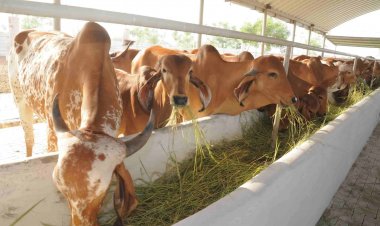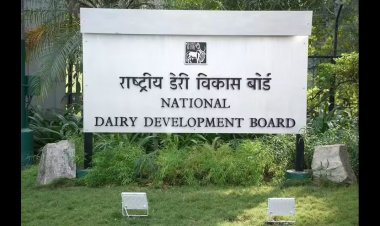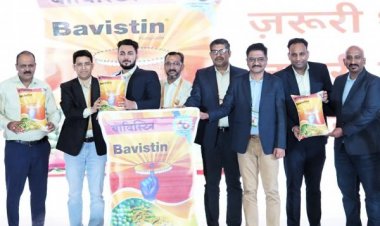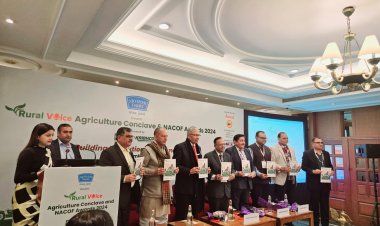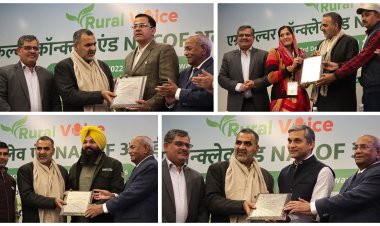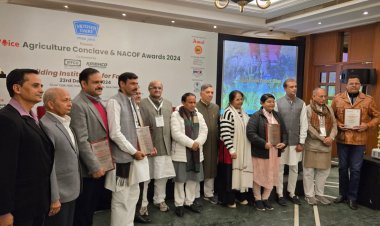Mega field experiment of mating disruption PBKnot technology to manage pink bollworm in cotton zone in North India
As part of “Project Bandhan – A Knot of PBW Protection”, the South Asia Biotechnology Centre (SABC), Jodhpur, under the technical supervision of ICAR-Central Institute for Cotton Research (CICR) has laid out a mega field experiment-cum-demonstration of novel mating disruption PBKnot technology in Northern cotton-growing zone for Kharif 2022. This will study and manage devastating cotton-devouring, monophagous and nocturnal pink bollworm (PBW) in farmers’ fields.
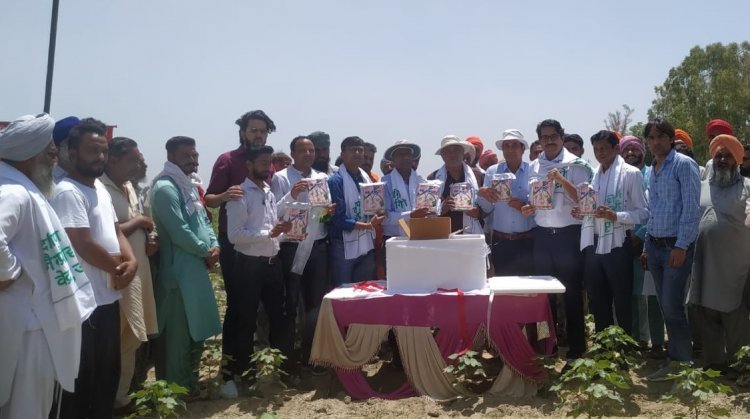
As part of “Project Bandhan – A Knot of PBW Protection”, the South Asia Biotechnology Centre (SABC), Jodhpur, under the technical supervision of ICAR-Central Institute for Cotton Research (CICR) has laid out a mega field experiment-cum-demonstration of novel mating disruption PBKnot technology in the Northern cotton-growing zone for Kharif 2022. This will study and manage devastating cotton-devouring, monophagous and nocturnal pink bollworm (PBW) in farmers’ fields.
The large-scale field demonstration covers around 469 acres in seven clusters each of over 65 acres spread in the seven districts of Bathinda, Mansa and Fazilka in Punjab; Sirsa and Fatehabad in Haryana; and Ganganagar and Hanumangarh in Rajasthan. It represents the cotton-growing geography of three states in the North cotton-growing zone.
The mega demonstration includes eight intensive on-farm training programmes to educate and train more than 650 farmers and farm labourers in all seven geo-tagged mega cotton clusters in the seven districts with the structured tagging of PBKnot thread, intensive training of field staffs, local volunteers and state coordinators to weekly collect adult PBW moth data, rosette flower and green boll damage in order to study pest dynamics and suggest control measures throughout the season as part of an integrated pest management (IPM) approach.
In addition to tagging PBKnot in the seven clusters, Project Bandhan distributed and installed large numbers of pheromone traps for monitoring both PBKnot-treated/control clusters and neighbouring farmers and covering ‘cotton leftover’ and ‘cotton stalk’ with mosquito nets for trapping adult PBW moth before mating and hatching in all seven PBKnot clusters.
“Mating disruption is an innovative pheromone-based technique that interferes with the reproductive cycle of PBW in such a manner that the population levels are significantly reduced and crop damage is diminished. The PBKnot dispenser releases sex pheromones to prevent male moths from finding females and mating, thus disrupting the reproductive cycle. The mating disruption has emerged as a powerful tool to manage pests such as PBW,” said Dr CD Mayee, President, SABC, Jodhpur.
“PI foundation has introduced this innovative mating disruption technology in collaboration with its partners from Japan for Indian cotton growers. This technology has widely been tested in India in various locations for the last three years and was found to be effective for PBW management. The Central Insecticide Board (CIB) has granted registration for sale in India in the year 2020 for effective PBW management. Last year PI successfully conducted demonstrations of this technology under the technical supervision of CICR Nagpur on 300+ acres,” said Prashant Hegde, CEO of PI Industries Ltd.
The PBW incidence on Bt cotton in North India was observed for the first time around ginning factories-cum-oil extraction units in Jind in Haryana and Bhatinda in Punjab during 2018-19. This was mainly due to the transport of resistant PBW larvae along with cotton seed being brought from the Central and Southern zone for oil extraction purposes. Bhatinda and Mansa in Punjab, and Sirsa, Fatehabad and Hisar in Haryana were the worst affected by PBW during the 2021 season. The losses of around 30 per cent were estimated by the Punjab government.
“Project Bandhan using mating disruption has been initiated by SABC at seven locations in the North zone and is expected to demonstrate the effectiveness of this environment-friendly technology as a component of IPM for dreaded pink bollworm”, said Dr Dilip Monga, ex-head of Regional Research Station, ICAR-CICR, Sirsa, Haryana.
Rajesh Suthar, Programme Coordinator of Ambuja Cement Foundation (ACF), said, “This year ACF collaborated with SABC to pilot the PBKnot technology to control the pests in cotton-growing areas of Punjab and Rajasthan. The PBKnot technology has a potential to control the pests by disrupting the mating of PBW adults. We are hopeful that this technology will emerge as effective pest control and will be an effective and handy method for cotton cultivators.”
Like India, the US cotton industry suffered from PBW for more than 100 years. Realizing the destructive nature of PBW, the US launched a countrywide PBW eradication programme in 2002 and by 2018 declared the country free from devastating PBW.
“Mating disruption was one of the key technologies along with male-sterile moth technology to eradicate cotton PBW from the USA in a coordinated multi-state area-wide programme between 2002 and 2018”, said Bhagirath Choudhary, Founder & Director of SABC, who is leading the country-wide Pink Bollworm Management Strategy and Scientific Outreach in Kharif 2022-23, dubbed as “Project Bandhan – A Knot of PBW Protection” under the technical supervision of ICAR-CICR.



 Join the RuralVoice whatsapp group
Join the RuralVoice whatsapp group

















